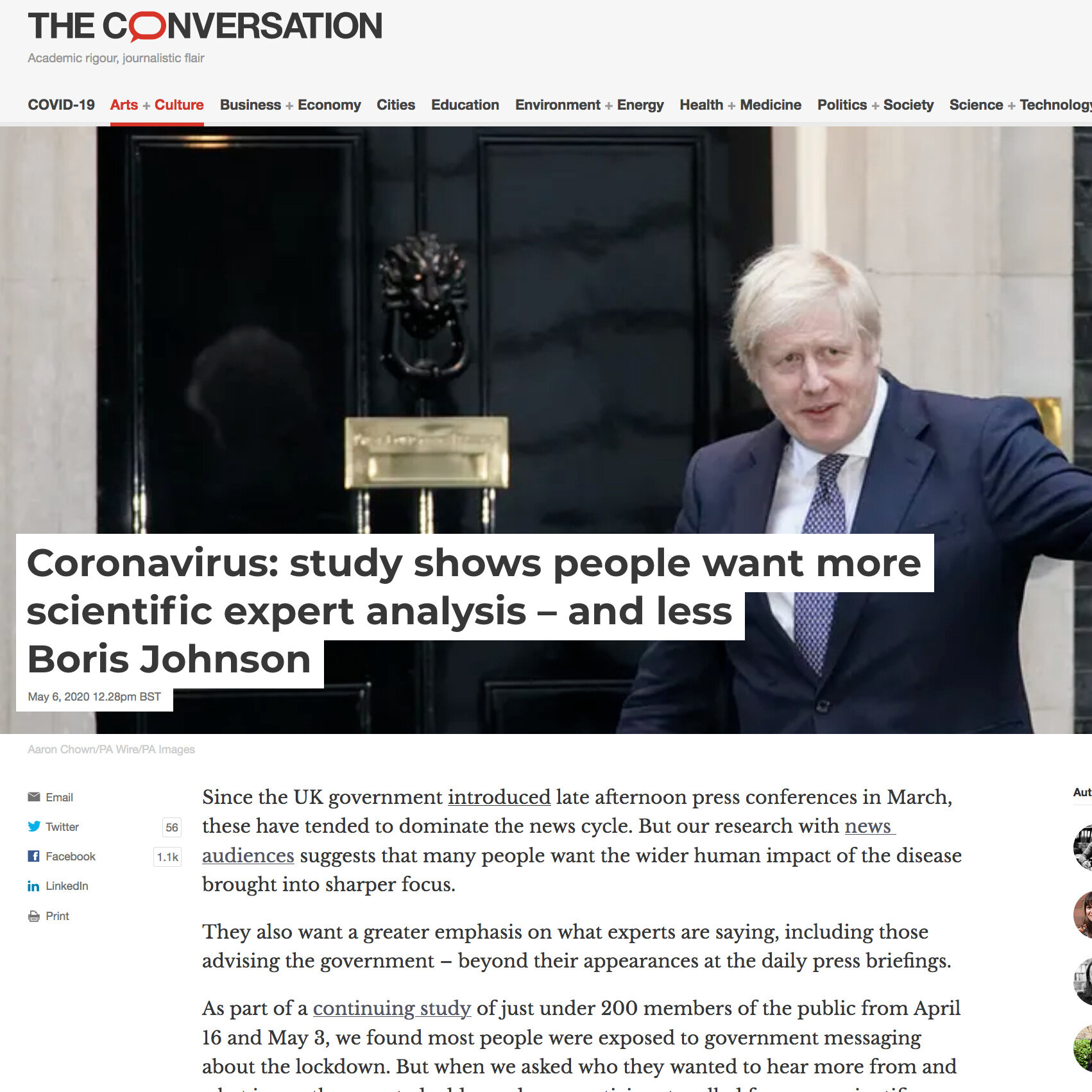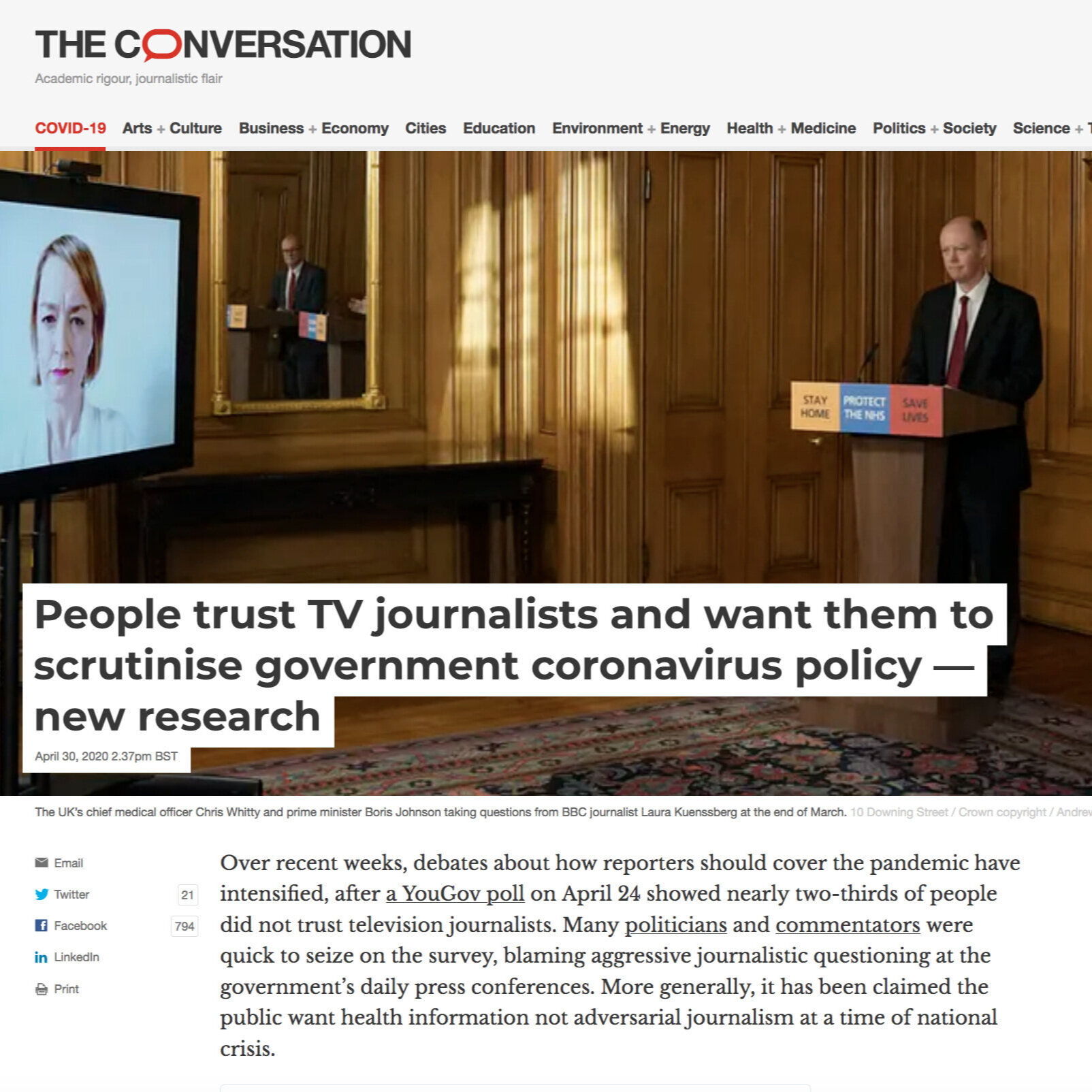Latest research
Our latest piece of research has recently been published in Journalism Studies; “Does the political context shape how “due impartiality” is interpreted? An analysis of BBC reporting of the 2019 UK and 2020 US election campaigns.” The research shows inconsistencies with how impartiality seems to be employed within the BBC, and in many instances a continued reliance on balance and “he-said-she-said” reporting, rather than true impartiality.
You can read the full paper here. To watch an animation highlighting some of the main findings of the paper, click on the video to the right. We worked with Learning on Screen to produce the video.

Coronavirus: Study shows people want more scientific expert analysis – and less Boris Johnson
As part of our study with just under 200 members of the public from April 16 and May 3, we found most people were exposed to government messaging about the lockdown. But when we asked who they wanted to hear more from and what issues they wanted addressed, our participants called for more scientific experts, free from political interference.

People trust TV journalists and want them to scrutinise government coronavirus policy
Generally, it has been claimed the public want health information not adversarial journalism at a time of national crisis. However, our study with almost 200 participants during the pandemic showed news journalists are trusted – particularly those working for broadcasters. Moreover, we found they wanted more – not less – critical coverage of the government’s response to the pandemic.

Research suggests UK public can spot fake news about COVID-19, but don’t realise the UK’s death toll is far higher than in many other countries
How much does the British public know about the pandemic? Our sample of 200 people and found that while there is widespread rejection of the 5G conspiracy theory, many people do not realise the UK death rate is far higher than in other countries.